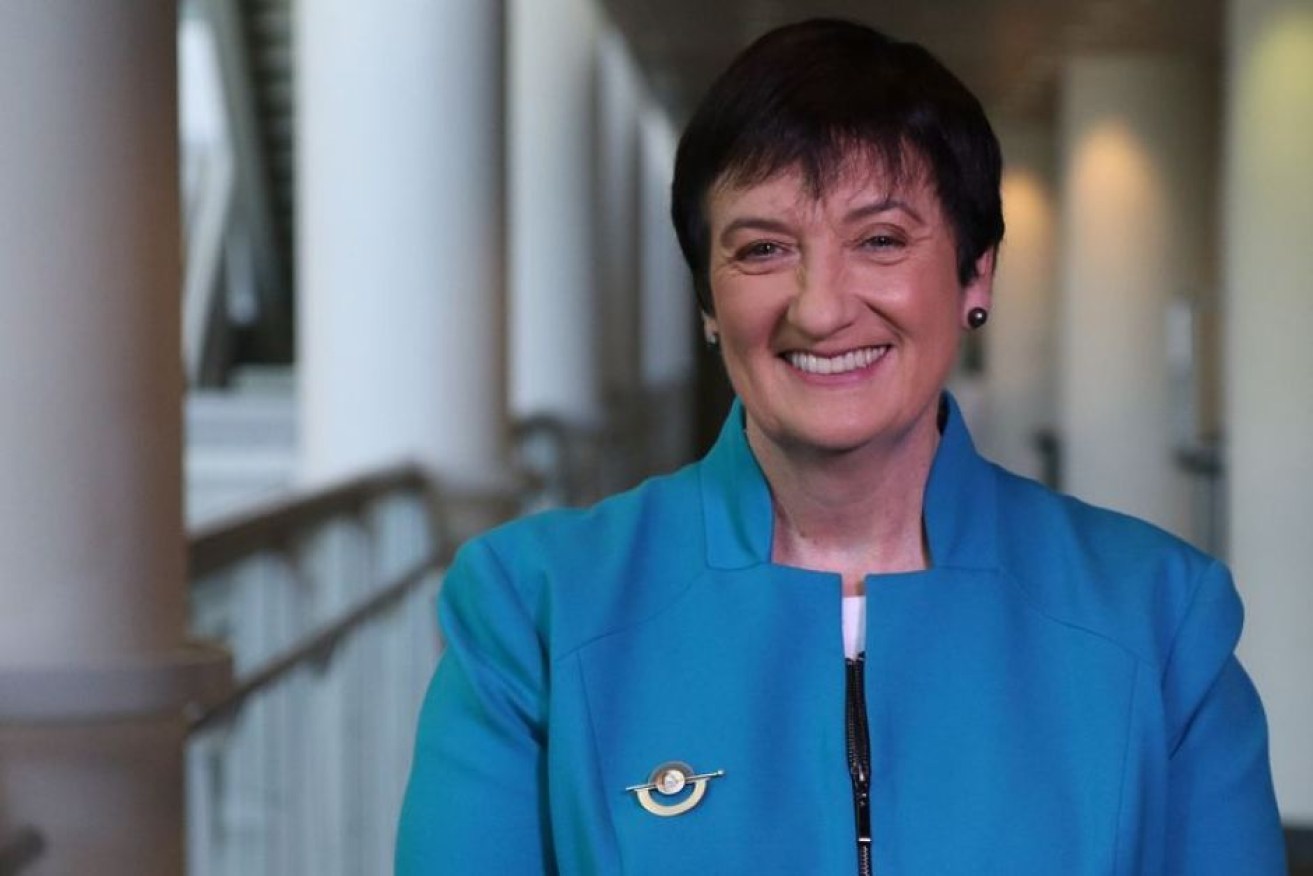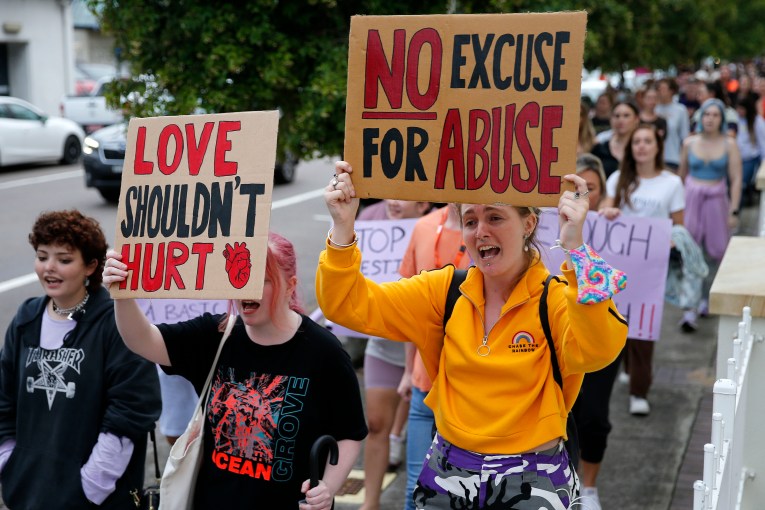Business Council of Australia to ramp up role in politics

Jennifer Westacott says the Business Council felt it had "no choice" but to get more involved in political campaigning. Photo: ABC
The Business Council of Australia (BCA), the lobby group representing Australia’s largest companies, has decided to do politics.
The BCA is embarking on an unprecedented level of political campaigning in the run up to the next federal election, committing to a program of television advertising, television programs, town hall meetings and direct grassroots campaigning in marginal electorates to promote business-friendly policies, like lower company taxes.
7.30 understands the peak business lobby group is asking its 130 members to pay $200,000 each towards a fighting fund for the campaign.
Under siege from senior figures in the Liberal Party for failing to promote business-friendly policies – and support the Coalition – and seeing the prospect of company tax cuts for the big end of town ebbing away, the BCA has decided to go on the front foot.
It is now spending big on political advice and political campaigning and is targeting marginal seats.
It argues it has no choice but to take on groups like GetUp! and what it sees as a destructive, anti-business sentiment rising in the community.
“To not do that means we will surrender our country to, I think, an inevitable set of very poor policies which will be bad for the country and to be honest, bad for the poorest people, not the richest people,” the BCA’s chief executive Jennifer Westacott said.
This is the first time the BCA has ever undertaken such a comprehensive or assertive public approach to politicking.
“This has to be substantial, it has to have an impact,” Ms Westacott said.
“We’re changing the way we work. Many people have told us to do that, and we’ve responded to that suggestion.
“Of course it requires resources and we’re in the process of raising that from our members.”
Town hall meetings in marginal seats
The BCA has announced a television advertising campaign which it says will “focus on two basic truths – business provides and generates jobs; and big and small businesses rely on each other to be successful”.

The Business Council’s next Strong Australia meeting will happen in Penrith.
It has begun a series of town hall-style meetings in some of the most marginal seats in the country. These will be followed by a series of dedicated panel discussions on Sky News through the rest of 2018.
7.30 has been told the organisation is paying Sky News $1 million towards the cost of the meetings and television programs.
Ms Westacott would not comment on how much money was involved but said the two organisations had a commercial arrangement in support of jointly held views about the need to promote policy discussions.
A spokeswoman for Sky News said it had “a commercial arrangement with the Business Council of Australia to produce and broadcast the television series Strong Australia”.
She said Sky News “maintains complete editorial control of the broadcast”.
The first of these Strong Australia programs was conducted during the South Australian election campaign and focused on retail shopping hours.
The next town hall meeting is scheduled for the hot political western Sydney battleground of Penrith and will focus on infrastructure.
It will be held just one week after the budget, which is expected to be long on infrastructure announcements.
More of these meetings will be held in Hobart, Queensland marginal seats, Western Australia and Geelong – one a month until November.
Panel of political advisers
The BCA has taken on a panel of political advisers which includes former Liberal Party federal director Brian Loughnane, power lobbyist Ian Smith and strategist Sue Cato.
It has also directly employed Andrew Bragg. Until late last year, Mr Bragg was the acting federal director of the Liberal Party.
He is also highly exercised about the role of groups like GetUp! and the unions in election campaigns.

Former Liberal Party federal director Brian Loughnane is on a Business Council panel of political advisers. Photo: AAP
He wrote in the Financial Review last year that “if the playing field isn’t levelled, Australia risks becoming the Argentina of the 21st century: blessed with opportunity, but captured by isolationists, special interest groups and quasi-socialists”.
Ms Westacott said that “if you go and hire people with particular talents and particular skills, just because they are from a political party doesn’t mean you’ve become a partisan organisation”.
“We’ve just recently hired some Labor Party people. My interest is good public policy, my interest is good campaigning techniques, my interest is getting that message out to the broader community.”
At GetUp!, national director Paul Oosting is very clear on why his organisation believes it is independent of political parties, no matter how much its activities might help one side of politics.
“GetUp! is a fiercely independent movement of over a million Australians. They set the direction of what GetUp! does, nobody else,” he told 7.30.
“That’s the exciting thing that determines the issues that we work on and the values that we fight for.”
Campaigning for business tax cuts
But there are signs of division within the BCA membership about the organisation’s new political assertiveness.
Through the BCA, 10 of Australia’s largest companies wrote a letter to the Senate in March committing to increasing wages and employment if the company tax cut went through.
But significantly, not all members of the BCA board signed the commitment, and it was not an official BCA position.
It was revealed after the letter was released that, in a BCA poll of its members earlier in the year, fewer than one in five of the BCA’s members said they would use the proposed company tax cut to directly increase wages or employ more staff.
A Senate committee has been examining the BCA’s pledge, and last week BCA President Grant King and Chief Executive Ms Westacott appeared at a public hearing.
It did not go well.
Mr King and Ms Westacott were repeatedly asked for, but were unable to provide, examples of a country where tax cuts had led to higher wages and employment.
It also emerged that Mr King and Ms Westacott had visited the controversial political consulting firm Cambridge Analytica in September 2017, though the two insisted the BCA had not employed the group.
In March it was revealed Cambridge Analytica had bought the data of about 50 million Facebook users, and played a role in both Brexit and the Trump election campaigns.









